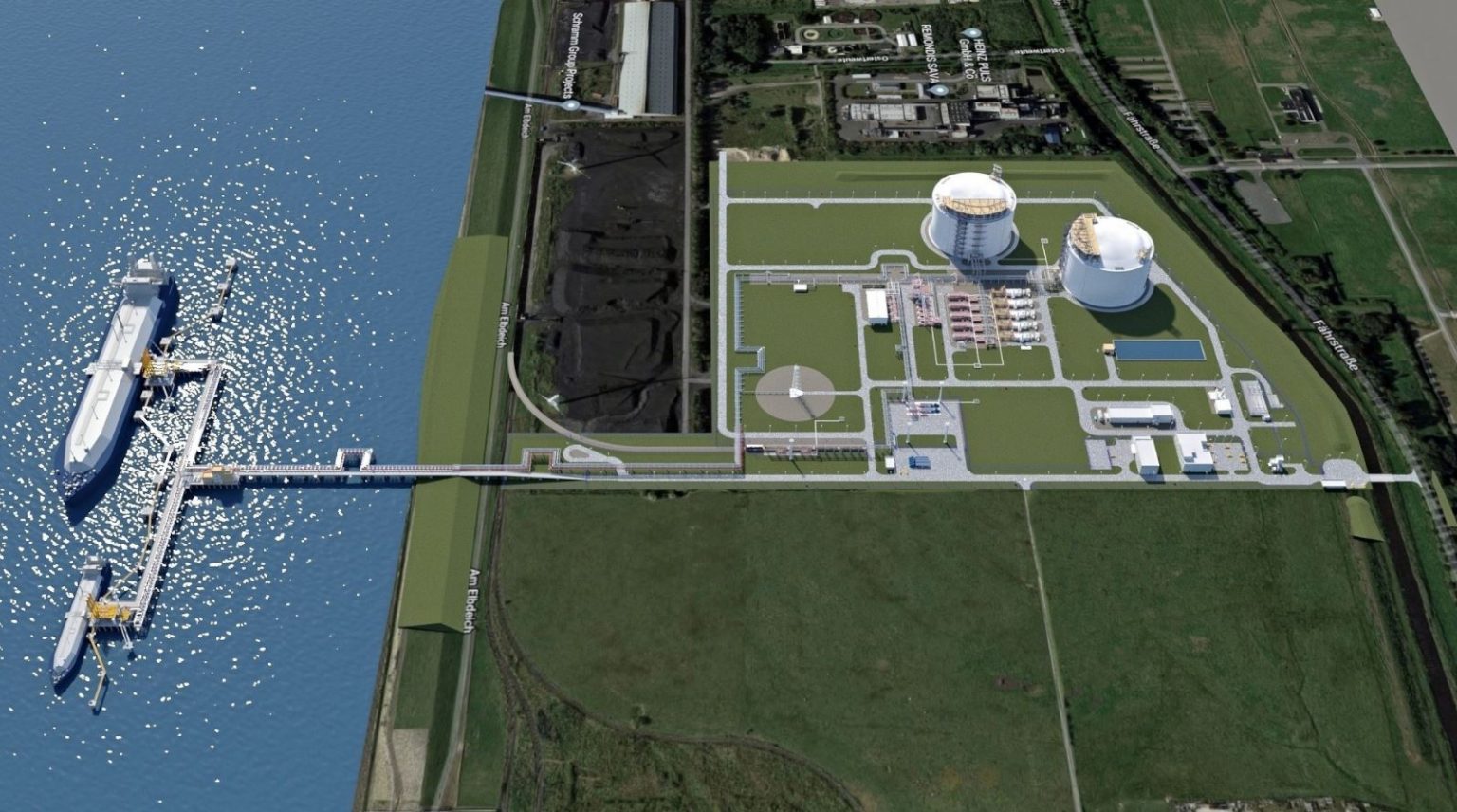German energy firm RWE, a shareholder in the planned Brunsbuettel LNG import terminal, aims to build an ammonia terminal next to the facility, as Germany looks to reduce reliance on Russian gas.
Dutch gas grid operator Gasunie recently joined forces with the German government and RWE to build the Brunsbuettel LNG import plant with a capacity of 8 billion cbm per year.
Gasunie will have a 40 percent operating stake while RWE will hold 10 percent in German LNG Terminal, the JV behind the Brunsbuettel LNG project.
Just two weeks after this announcement, RWE said in a statement it would build a plant to import ammonia next to this facility.
RWE is relying on green ammonia as the “most competitive hydrogen derivative with the highest level of technological maturity,” the firm said on Friday.
Also, the project would help facilitate the subsequent conversion of the entire site ready to import green molecules, according to RWE.
“This underlines RWE’s aspiration, as a shareholder in the LNG terminal, to pay particular attention to its green conversion. Brunsbuettel can thus become a role model for the decarbonization of industrial society,” the firm said.
300,000 tonnes of green ammonia
From as early as 2026, RWE expects to import around 300,000 tonnes of green ammonia per year via the terminal distribute it to customers.
The next step is to build a cracker on a large industrial scale at the terminal to produce green hydrogen on site as well.
This would then be transported to industrial customers via a dedicated hydrogen pipeline, it said.
With this expansion stage, RWE plans to boost the volume of ammonia to two million tonnes per year.
Due to its direct access to the North Sea and the Baltic Sea, and its connection to European inland waterways, the Brunsbuettel site offers “ideal logistical conditions” for the project.
Brunsbuettel Ports is supporting the project with space and as a logistics partner with port infrastructure to unload tankers.
RWE expects investments in the “mid three-digit million euro range,” it said.
“We must become independent of fuel imports from Russia”
Germany’s Minister for Economic Affairs and climate Action Robert Habeck welcomed the project.
“Russia’s brutal war against Ukraine has made it abundantly clear that we must become independent of fuel imports from Russia,” he said in the statement.
Moreover, he said that the LNG terminal in Brunsbuettel was an important element in this, as it would increase the capabilities to import gas to Germany.
“Green ammonia as a liquefied hydrogen derivative can make an important contribution to supplying Germany with green hydrogen. At the same time, we can gain important experience with this project for the conversion from LNG to green hydrogen or hydrogen derivatives,” he said.
Markus Krebber, CEO of RWE AG, said, “it is now more important than ever to think of climate protection and security of supply as one.”
“That’s what we are doing,” Krebber said.

